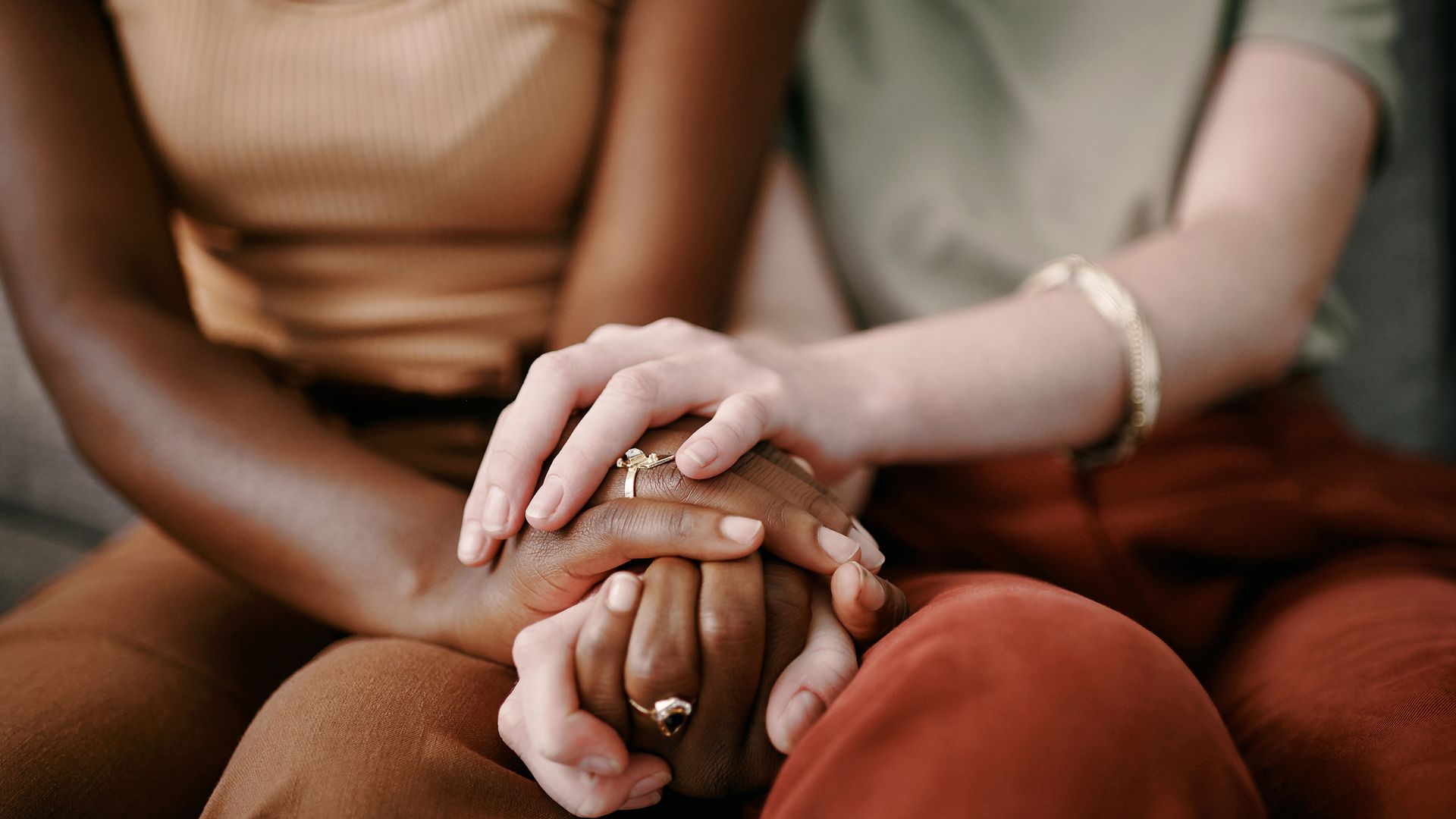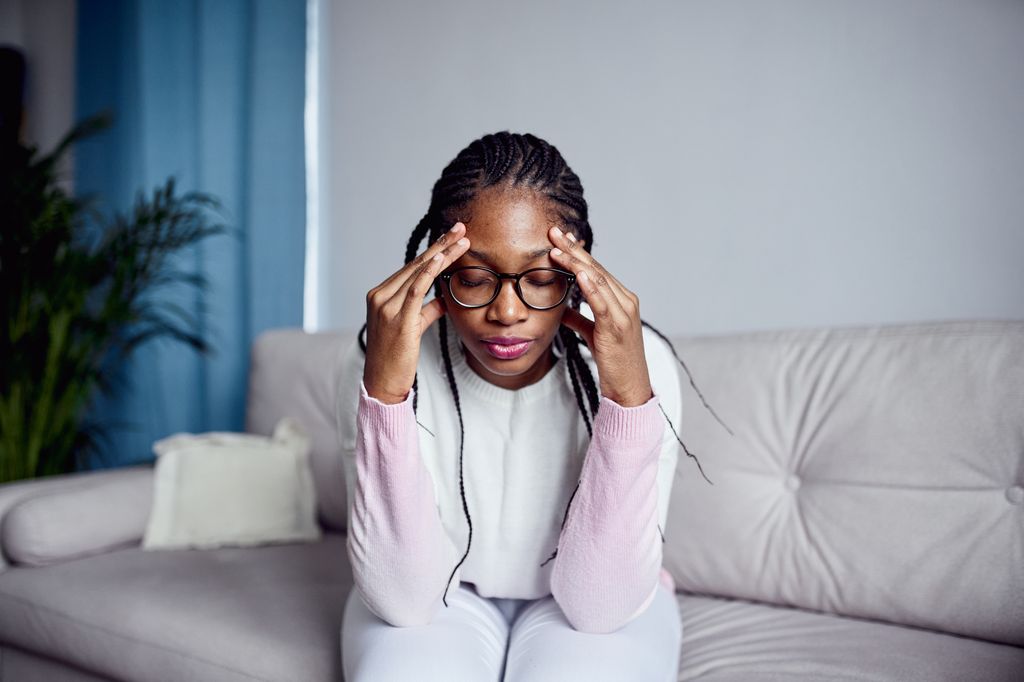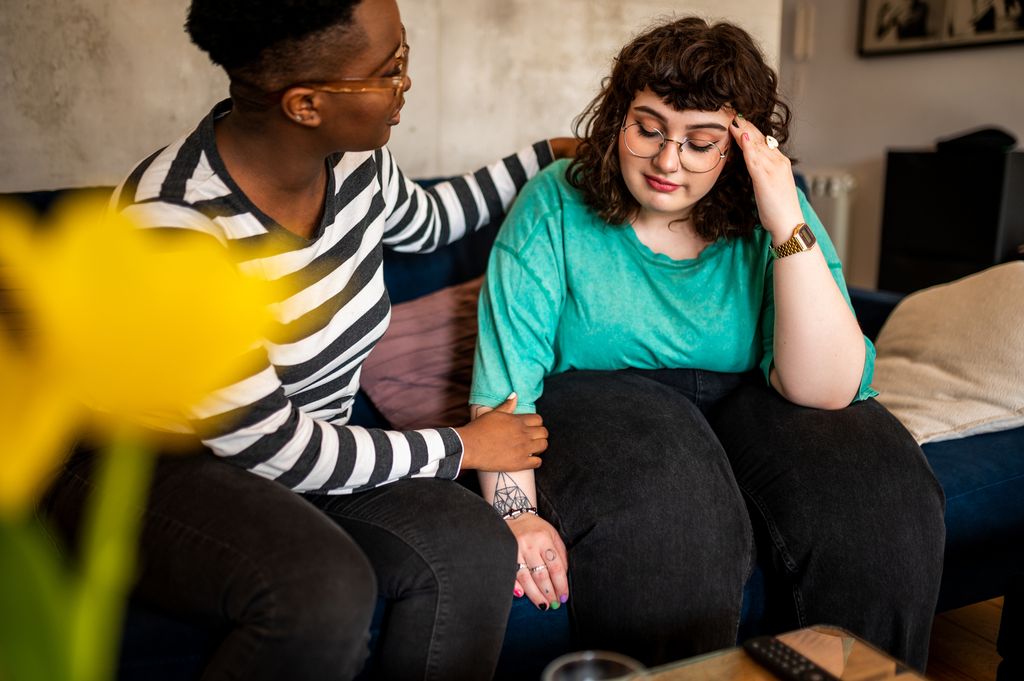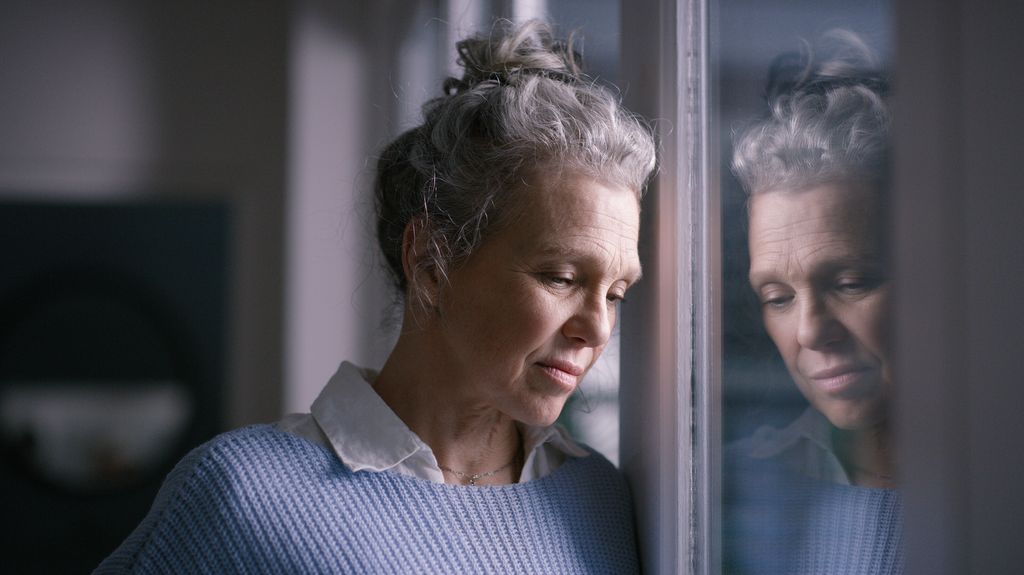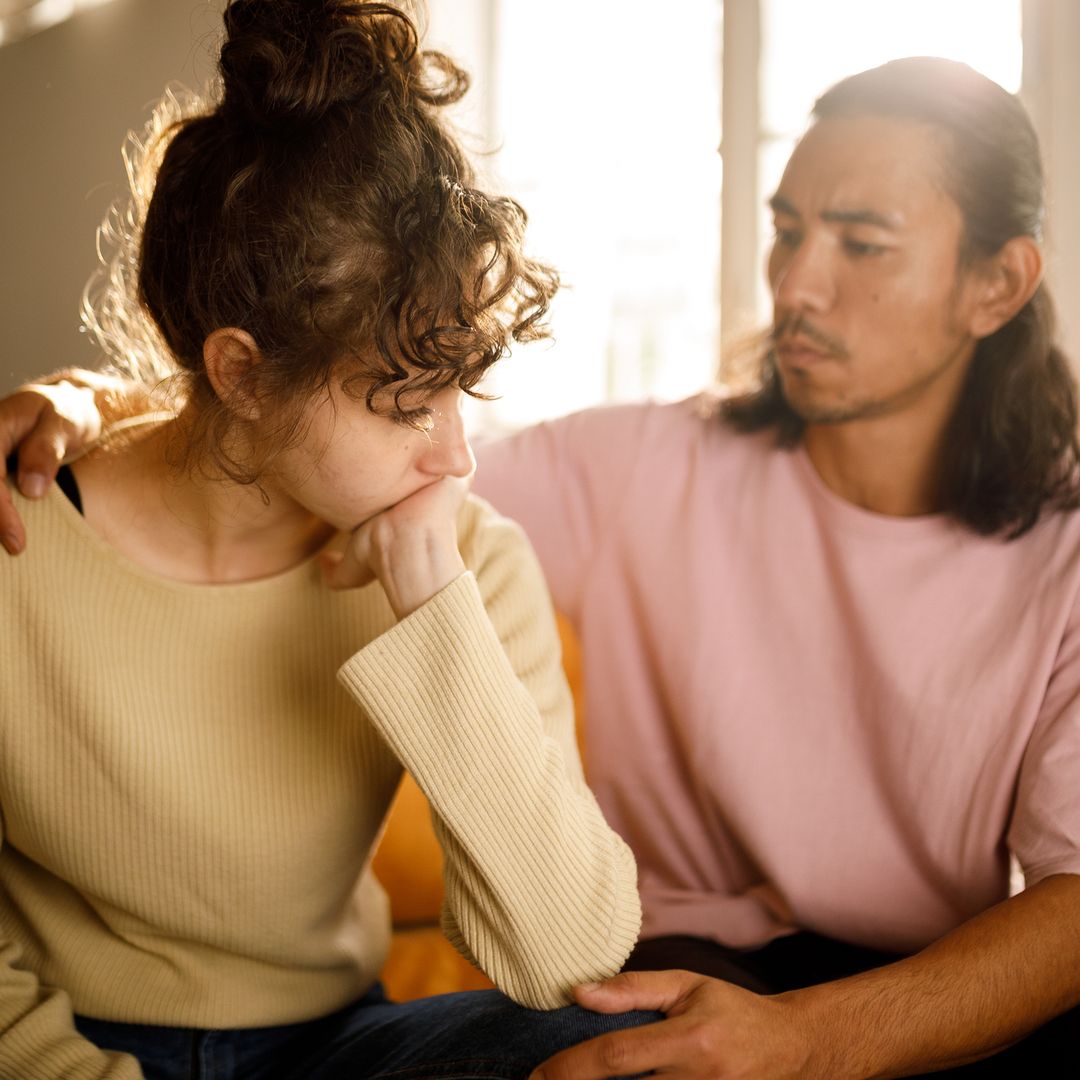It's an upsetting thought that at some point, all of us will be impacted by grief. Whether it's the loss of a loved one, the passing of a pet or having to say farewell to a close friend, grief hits us all differently and can leave many of us feeling lost and alone.
In honour of Grief Awareness Week, we spoke to BACP-accredited therapists about the one thing they want their clients to know about grief. We hope it brings comfort to anyone struggling this week.
1. You will get through it
"It’s hard to believe when you first suffer a loss that you will ever recover but please believe me when I say that you will," urges integrative counsellor and psychotherapist Lulu Sinclair, who specialises in grief, loss and trauma.
"We all experience grief individually and differently so, while I can’t say exactly how you will experience it, I can speak from my own experience and those of others I have helped through their loss.
"After the numbness and initial disbelief may come the indescribable pain and misery that you fear will never stop. It will. The anguish and waves of despair that wash over you when you begin your grieving will recede over time with each wave being slightly less powerful than the last.
"There is no shortcut to the emotions – including anger – you may feel but these too will lessen. Don’t rush, don’t make any sudden life-changing moves and don’t worry about other people and how they may think you 'should' be managing it. You know you best.
"It takes around two years to come through the loss of someone for whom you cared deeply. You may feel different but you will get through it. And please remember that you do not have to leave behind those who are gone, you can carry them always with you in your heart."
2. There is no "right" or "wrong" way to grieve
"It's important to understand that grief is a natural and individual process," says senior accredited BACP psychotherapist Andy Garland.
"Grief can manifest differently for each person, and there is no "right" or "wrong" way to grieve. It can be a complex journey that involves a range of emotions and this may take time. Grief isn’t something to be rushed; it's about finding ways to heal and adapt to loss in your own time and a way that works for you."
DISCOVER: Why do I feel sad during winter? An expert explains
Bereavement counsellor Sara Matthews agrees, adding: "Many people feel they are doing grief wrong. When people are doing their best to get on with life, they feel guilty they are not sad enough. When they feel sad, they feel wrong for not coping very well.
"There’s a self-consciousness to grief that causes people to worry it’s lasting too long or if they seem okay that others will think they don’t care. Grief is hard enough without the rules we impose on ourselves about how we feel and what we need."
3. Our mind will reprioritise grief
"I often share with my clients that the actual grief doesn’t change, which can be a scary thought," says Andy Garland. "What does change is the life and experiences that surround and grow after grieving begins. This means that our mind establishes a new priority for dealing with the trauma and grief.
"It’s a little like automated mindfulness – our thoughts are directed to the most immediate and current experience. So, we get to choose our thoughts and feelings whilst honouring the grief from a more healthy perspective."
DISCOVER: What is TRE and can it help ease trauma? I tried it
4. Feelings often don't fade
"The idea that we must 'get over' our grief still prevails for many people," says Sara. "But a grieving parent won’t stop loving their child simply because they have died. Love lives on.
"And sometimes other less positive feelings, such as anger and hurt can also remain if the r
5. Grief can get worse before it gets better
"When someone first dies, we will feel shocked – even if the death has been anticipated, after a long illness for example," explains Sara.
"Death is always shocking and shock has its uses. It protects us from the worst of our pain. It allows us to do what we need to do in the immediate aftermath of a bereavement. Gradually shock begins to wear off and then our pain can feel as if it’s getting worse.
"What’s really happening is that we are increasingly more aware of the full extent of our feelings which is why it can feel like things are getting worse."
READ: How can I stop relying on my friends for happiness? An expert's guide
6. Grieving looks different to different cultures
"It's important to realise that how someone responds to grief may be informed by their cultural and religious beliefs," says psychotherapist Bhavna Raithatha.
"In some cultures, there will be clear periods of mourning either before or after their loved one has been laid to rest or cremated.
INSPIRATION: How nature helped me reconnect with myself after my parents died
"There will be rituals with prescribed dress codes and a limiting or stopping of certain social activities such as going out, attending parties or weddings or any form of celebration during the mourning period.
"In other cultures, there is clear frowning on displays of emotions and the whole process of death is sanitised and dealt with formally. The important thing to remember is that how we respond to grief is a very personal matter regardless of customs and rules and people should deal with grief in whatever way feels appropriate as long as they are not at risk of harm to themselves or others."
7. Tea can help!
"Crying makes you dehydrated. So sometimes a nice cup of tea can be genuinely helpful," adds Sara.
To find a therapist, visit BACP and for more mood-boosting content, visit our HELLO! Happiness Hub
